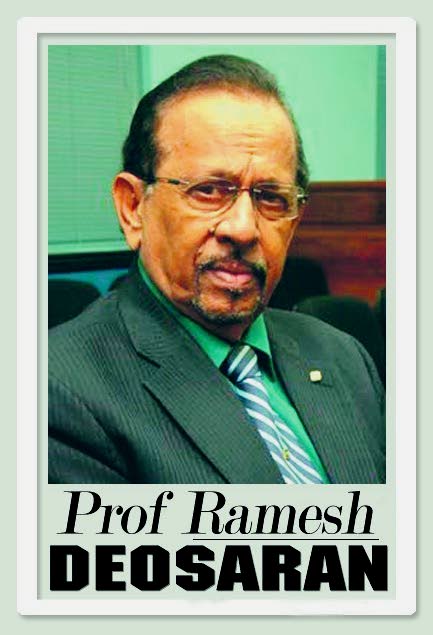Psychology of the budget

Seeing how the elephant remained so quiet with one foot tied to a stake, the little boy asked his father: “Pa, why this strong elephant can’t break the stake and free itself?”
"Son," replied the father, "it is because it has grown used and accustomed to it."
I remembered this story when three weeks ago, a senior official of the Office of Disaster Preparedness and Management (ODPM) advised complaining flood victims to “adapt” to the realities of regular flooding. In other words, get used to it. In fact, if flood victims persist in complaining, it would appear that they are mentally “maladjusted.” They have been displacing their aggression by blaming one another.
The robust complaints about flooding this year have been less than last year’s and even less than the year before. It is called normalisation. In fact, we have already “adapted” to bad potholed roads, high murder rates consoled by self-serving reference to the second highest in 2019, bad customer service, etc. By several pre-budget seminars, “hardship measures” were justified as if to prepare citizens’ minds for the inevitable.
Soon after the indomitable civil engineer, now Finance Minister, Colm Imbert presented government’s budget ($49.6 billion, $17 billion deficit expected) last Monday, PM Dr Keith Rowley began playing the “political therapist,” saying the budget measures “could have been worse,” that he will not allow any monopoly by the new gas station owners, that there should be “no public concerns” over the motor vehicle tax exemptions for ministers and MPs, etc.
One newspaper front page, with a fulsome picture of Planning Minister Camille Robinson-Regis, blared: GAS BRAINS, adding “Govt ministers’ car tax breaks 2015-2020 total $7m.” Of course, all UNC MPs and Independent Senators get such tax exemptions too. Facebook warrior Suzette Louwe’s anti-exemptions presentation gained social media resonance. Vinda RamSingh’s posts were quite virulent, making it look like a “politicians vs the people” budget.
The economics of the budget moved into politics then into the psychology of relative deprivation all around. The government sought to apply some healing.
In fact, in his political management mission, Dr Rowley said that government considered “a complete ban” on all imports of motor vehicles but instead showed sympathy by applying quota restrictions and removal of some tax concessions.
Rowley’s artful performance reminded me of the “bad cop, good cop” manipulation exercised during police interrogation of crime suspects. It was Machiavellian psychology for political necessity. (Opposition Leader Ms Kamla Persad-Bissessar replied Friday, after this column was written.)
The government’s privatisation of gas stations recalls the 1965 gas station racket inquiry. Several witnesses, including civil servant Gene Miles and Factory Inspector Kenneth Tam, revealed the gruesome extent to which licences were corruptly given by government officials for kickbacks. Political controversy also erupted over gas-station bidding in 2011.
Bypassing other measures like increased taxes on "luxury" items, taxes on manufacturing equipment, ferry service, the $1.7 billion for agriculture, housing, etc, these high-level tax exemptions for MPs so far have become the flagship post-budget controversy.
Newly elected governments have learnt that it is more comfortable for them to introduce the relatively harsh measures in their first budget – just after winning the election. After all, there are five years for clean-up, especially if energy incomes increase.
In the middle of all this, lest we forget, are the economic and social challenges imposed by covid19. A budget, like almost everything else, cannot be business as usual.
Government should now strategically exploit the “creative destruction” aspects of the covid19 intervention. That is, improvements in individual initiatives and partnerships, with self-help, entrepreneurship, co-operatives, etc. Dr Rowley knows that. It was part of his language while in Opposition and before covid19. The government cannot continue with its bundles of subsidies and grants. Debts (80 per cent of GDP) will drown us. The Government faces bankruptcy.
Much more than the budget book-keeping, alongside the economic projections hurtfully lies the need for moral leadership, for examples of socio-economic equity. In this compressed world, citizens point to India, where the 70-year-old Narendra Modi’s government reduced politicians’ salaries by 30 per cent, and so too New Zealand’s 40-year-old PM Jacinta Ardern, reducing ministers and senior officials’ salary by 20 per cent for six months. This is inspiring moral leadership in a time of crisis, beyond the divisive politics of a budget.

Comments
"Psychology of the budget"